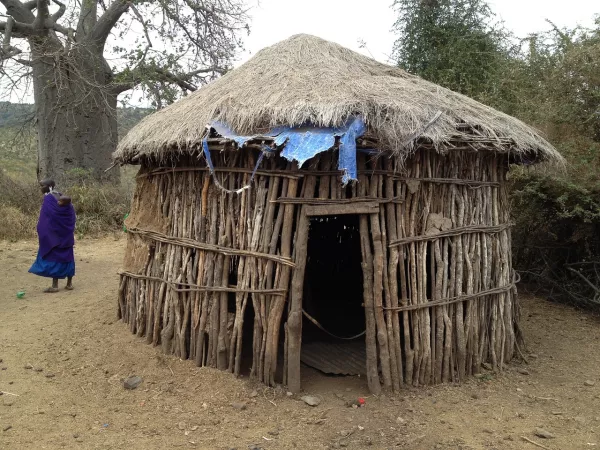
Kile Pakho
Duration
2 to 4 Days
2 to 4 Days
Best time to visit
Mar-May, Oct
Mar-May, Oct
Theme
Hill Station, Adventure
Hill Station, Adventure
Kile Pakho Travel Guide
Kile Pakho, a hidden gem nestled in the heart of the Himalayas, is a paradise for nature lovers and adventure enthusiasts. This picturesque destination is renowned for its pristine landscapes, ancient monasteries, and vibrant cultural heritage. The region's rich history dates back centuries, with influences from Tibetan Buddhism and indigenous tribes. Kile Pakho is a haven for trekkers, offering breathtaking views of snow-capped peaks, lush valleys, and crystal-clear rivers.Top Attractions in Kile Pakho
- Explore Tawang Monastery, the largest monastery in India
- Witness the stunning beauty of Sela Pass
- Visit Nuranang Waterfall for a refreshing experience
- Discover the ancient Gorsam Chorten and Bap Teng Kang
- Experience local culture at the Monpa Village
Kile Pakho is Famous for
Peaceful monasteries and breathtaking landscapesTop Attractions in Kile Pakho
- Exploring the ancient Tawang Monastery
- Marveling at the beauty of Sela Pass
- Chasing waterfalls at Nuranang Waterfall
- Immersing in local culture at Monpa Village
- Trekking through the scenic Himalayan trails
What's Great about Travelling to Kile Pakho?
- Perfect destination for nature lovers and adventure seekers
- Unique cultural experiences with Tibetan and Monpa influences
- Breathtaking views of the Himalayan landscapes
What's Not So Great about Travelling to Kile Pakho?
- Remote location with limited modern amenities
- Challenging terrain for inexperienced trekkers
- Harsh weather conditions in winter months
Travel Tips for Kile Pakho
- Obtain necessary permits for visiting restricted areas
- Pack warm clothing and sturdy hiking shoes
- Respect local customs and traditions
Important Kile Pakho trip information
- Ideal Duration: 5-7 days for a comprehensive experience
- Best Time to Visit: April to June and September to October for pleasant weather
- Nearby Airports and Railway Stations: Nearest airport is in Tezpur, and closest railway station is in Naharlagun
FAQ's on Kile Pakho
Q1: What is the best time to visit Kile Pakho?
The best time to visit Kile Pakho is during the dry season, which typically runs from May to October. This period offers pleasant weather for exploring the country, with lower chances of rainfall. Additionally, several cultural festivals and events take place during this time, providing a unique insight into local traditions and customs.
Q2: Do I need a visa to travel to Kile Pakho?
Most visitors to Kile Pakho will need a visa to enter the country. However, some nationalities may be exempt from this requirement or eligible for visa-on-arrival. It is advisable to check with the nearest Kile Pakho embassy or consulate for the most up-to-date visa information before planning your trip.
Q3: What are the must-visit attractions in Kile Pakho?
Kile Pakho boasts a variety of must-visit attractions, including the majestic Mount Sino, the vibrant markets of Kile City, and the serene Lake Kashi. Other popular destinations include the historic Kile Palace and the picturesque Kono Valley.
Q4: Is Kile Pakho a safe place to travel?
Kile Pakho is generally considered a safe destination for travelers. However, it is advisable to exercise caution in crowded areas, avoid displaying valuable items, and be aware of your surroundings. It is also recommended to follow any local safety advisories and stay informed about current events.
Q5: What is the local currency in Kile Pakho and can I use credit cards?
The official currency of Kile Pakho is the Kilean Dollar. While credit cards are accepted in major cities and tourist establishments, it is advisable to carry some cash for smaller purchases and in more remote areas. ATMs are also available in urban centers for convenient access to local currency.
Q6: What is the local cuisine like in Kile Pakho?
Kile Pakho offers a diverse culinary scene, with a mix of traditional dishes and international influences. Some popular Kilean dishes include spicy Kashi noodles, flavorful Sino curry, and sweet Kono pastries. Vegetarian and vegan options are also available in most restaurants.
Q7: What transportation options are available in Kile Pakho?
Transportation options in Kile Pakho include public buses, taxis, and rental services. The country also has a well-connected railway network, making it easy to travel between major cities and regions. Local guides and tour operators can also arrange transportation for sightseeing tours.
Q8: Are there any cultural norms or etiquette I should be aware of when visiting Kile Pakho?
When visiting Kile Pakho, it is important to respect local customs and traditions. Dress modestly when visiting religious sites, remove your shoes before entering someone's home, and always greet others with a smile. Additionally, it is customary to try a little of everything when offered food or drinks as a sign of politeness.
Q9: I am a travel agent. How can I buy travel leads of Kile Pakho?
Register yourself as a travel agent at agents.tripclap.com and then you can buy travel leads to Kile Pakho once your account is approved. For more details contact our support team at +91-8069186564 or support@tripclap.com
